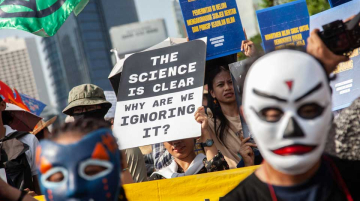
Two weeks ago, Indonesian President Joko “Jokowi” Widodo and his ministers received a visit from the U.S.-ASEAN Business Council (U.S.-ABC). Green industries — particularly electric vehicles — were at the top of Indonesia’s talking points.
“How can Indonesia get facilities to enter the electric vehicle market in the United States and how can we increase role and also the ability to attract investment,” said Minister of Finance Sri Mulyani in her comments about what was discussed.
Jokowi and his ministers also talked about the transition to clean energy and the new capital city — which has been advertised as a green, smart city — showing that these were of the highest priorities, while emphasizing that Indonesia would cooperate with “all parties” despite geopolitics.
The U.S. delegation said it was committed to supporting Indonesia and its climate goals, but the fact remains that the US and its allies have to catch up with China, which is currently the top financier for Southeast Asia, particularly Indonesia.
The stance from Indonesia, the region’s largest nation, has always been clear: it accepts that climate is the world’s number one problem, but in order for Indonesia to take it seriously, the climate agenda also has to have an obvious economic advantage. Furthermore, this development must also be steered by the government.
This view is inherently conflicting. Solving climate problems cannot be all about economic profit. Unfortunately, this is how many ruling elites in Southeast Asia see it.
“The economy is the priority – intra-ASEAN trade,” said Sihasak Phuangketkeow – the former permanent secretary of Thailand’s Ministry of Foreign Affairs, when he talked to South China Morning Post (SCMP) in April. “Right now, we have to move towards a green economy, and this is something Asean needs. China has the technology,” he added.
China continues to launch initiatives, whether it’s the BRI, GSI, or GDI, that resonate with Southeast Asian leaders and takes little issue with local governments’ ethos. That is why China’s economic development diplomacy is frequently more attractive compared to the West’s security-centric approach, according to a report by ISEAS Yusof Ishak Institute.
But, whatever the approach, in the end, Southeast Asia thinks China always delivers.
“Competition is good, but the emphasis of zero-sum games is what we’ll avoid,” Phuangketkeow said in the same SCMP interview. “The US and its allies have the initiative to build better. But so far, there’s a lot of talk but not much concrete action.”







